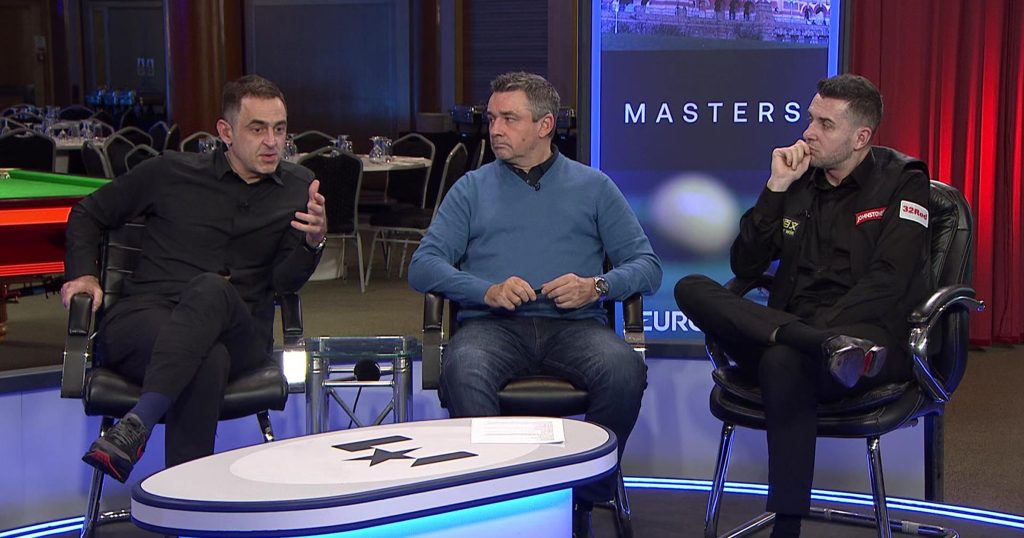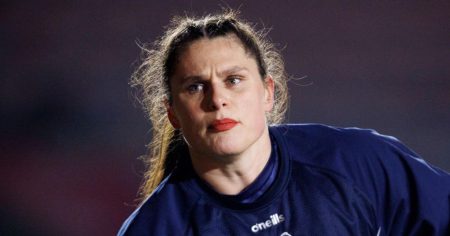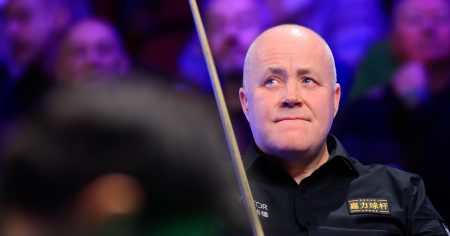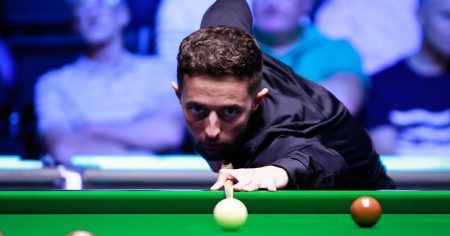The world of professional snooker, while often perceived as a genteel and controlled sport, carries immense pressure, demanding a unique blend of technical mastery and psychological fortitude. This reality was brought to the forefront following Ronnie O’Sullivan’s emphatic 6-1 victory over Ali Carter in the first round of the Masters, prompting a compelling discussion on Eurosport and discovery+ featuring O’Sullivan himself, alongside fellow snooker legends Alan McManus and Mark Selby. This post-match analysis transcended the usual dissection of tactical nuances and shot selection, delving instead into the often-unseen mental battles faced by players competing at the highest levels of the game. The conversation offered a rare glimpse into the psychological demands of professional snooker, highlighting the importance of mental well-being in a sport where composure under pressure is paramount.
The three snooker icons, each with their own experiences of navigating the pressures of professional play, provided insightful perspectives on the mental health challenges within the sport. O’Sullivan, known for his candidness, opened up about the immense strain players endure, not only during tournaments but also in the periods leading up to them. He acknowledged the solitary nature of the sport, where the weight of expectation and the constant pursuit of perfection can take a significant toll. McManus, reflecting on his own extensive career, echoed these sentiments, emphasizing the crucial role of mental resilience in handling the unpredictable swings of fortune inherent in snooker. Selby, a four-time World Champion, added his own experiences, describing the intense pressure of maintaining top-level performance and the impact this can have on a player’s mental state. The discussion underscored the unique pressures of snooker, where players must contend with intense scrutiny, solitary practice regimes, and the constant threat of losing form.
The conversation moved beyond the individual struggles, exploring the broader context of mental health within the snooker community. The panel discussed the importance of creating a supportive environment where players feel comfortable seeking help and openly discussing their mental health concerns. Historically, conversations surrounding mental well-being have been stigmatized, particularly in the sporting world, where vulnerability is often perceived as weakness. However, the panel’s frank discussion represented a shift towards greater openness and a recognition of the crucial link between mental health and performance. They emphasized the need for increased awareness, education, and access to mental health resources within the snooker world. This acknowledgement signified a move towards breaking down the stigma surrounding mental health and fostering a culture of support within the sport.
The significance of the conversation extended beyond snooker, resonating with the broader sporting landscape and indeed, the wider societal awareness of mental health. The pressures faced by snooker players, while unique to their sport, mirror the challenges encountered by individuals across various high-pressure professions. The intense focus, the constant pursuit of excellence, the fear of failure, and the public scrutiny are all factors that can contribute to mental health struggles. The openness and honesty displayed by O’Sullivan, McManus, and Selby served as a powerful message, encouraging others to prioritize mental well-being and seek help when needed. Their willingness to discuss these issues on a public platform contributed to the ongoing normalization of conversations around mental health, highlighting the importance of support and understanding.
The interview also highlighted the importance of developing coping mechanisms and strategies for maintaining mental well-being in the demanding environment of professional sport. The panel discussed techniques such as mindfulness, meditation, and the importance of maintaining a balanced lifestyle to help manage stress and pressure. They emphasized the necessity of having a strong support network, both within and outside the sport, to provide emotional support and guidance. They also touched upon the importance of self-care practices, such as regular exercise, healthy eating, and prioritizing sleep. The conversation served as a valuable reminder that maintaining mental well-being is an ongoing process, requiring proactive strategies and a commitment to prioritizing one’s mental health.
Ultimately, the post-match discussion following O’Sullivan’s victory over Carter served as a crucial platform for raising awareness about mental health within snooker and beyond. The candid insights shared by O’Sullivan, McManus, and Selby provided a valuable glimpse into the psychological challenges faced by professional athletes and underscored the importance of creating a supportive environment within the sporting world. Their willingness to openly discuss these issues contributed to the destigmatization of mental health conversations, encouraging others to prioritize their well-being and seek help when needed. The interview served as a powerful reminder that mental strength is just as crucial as physical prowess, and that achieving peak performance requires a holistic approach that encompasses both physical and mental well-being. The conversation hopefully marks a turning point in the way mental health is addressed within the sport of snooker, paving the way for greater understanding, support, and resources for players at all levels.














